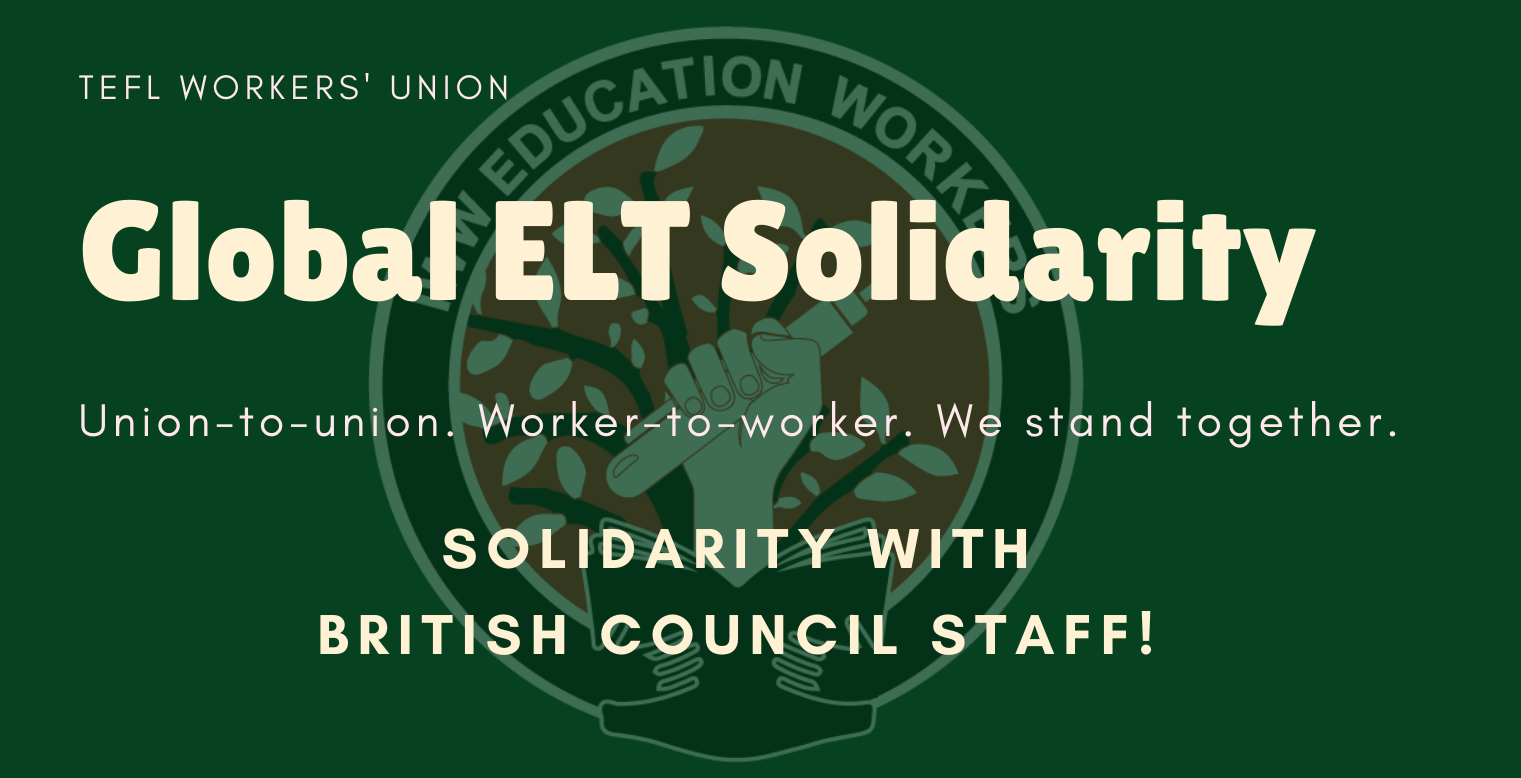As employers across the globe continue to use the pandemic and the resulting economic crisis to attack working conditions, staff at the British Council are being balloted for strike action by their union, PCS. The dispute centres on the failure of the British Council to properly consult on redundancies as well as threats to privatise and restructure the organisation.
In fighting to defend their working conditions, the staff at the British Council have our full support and solidarity.
Statement endorsed by the TEFL Workers’ Union Steering Committee (IWW)
The British Council as a global institution
As a union we have been, and continue to be, deeply critical of the British Council (BC) as an organisation.
In public statements, the British Council promotes itself as a ‘soft power’ asset of UK foreign policy. A more honest assessment would recognise that the British Council itself came out of the Empire. To this day, the British Council largely functions as an adjunct to the Foreign Office. Whatever humanitarian missions the BC may claim to have, it is intimately tied to the destructive and imperialist role the UK government continues to play around the world.
We remind all those who are represented by PCS within the BC that they are battling an organisation which is part of the British imperialist state. Regardless of where they may sit within the BC hierarchy, none are safe from the neo-liberal drive towards precarity. The way in which the BC is treating its staff – the hypocrisy, the dishonesty, the willingness to sacrifice our well-being – is simply a mirror to UK foreign policy around the globe.
The British Council within TEFL
The British Council plays a key role in the TEFL industry, both here in Britain and globally. The BC, in theory, regulates the industry. By receiving BC accreditation, it signals that a language school is legitimate in terms of teaching practice, safeguarding, and administration. Beyond this, the British Council runs its own language schools across the globe.
As a union, we want to see TEFL regulated by a genuinely independent body. A system whereby schools pay the accrediting body in order to be to be inspected is not regulation in any real sense of the word. Combine this with the fact that the British Council, as a matter of policy, will not implement standards of working conditions into the accreditation process and we can begin to see why the global ELT industry is wracked by inequality, precarity, and exploitation.
Solidarity between workers
Whatever criticisms we may have of the British Council as an organisation, we stand in shoulder-to-shoulder solidarity with the workers at the British Council.
A huge aspect of the problems that we face as workers in the ELT industry stem from the private sector nature of the industry. The profit motive in education, as in any industry, means any instability is offloaded on the staff: zero-hours contracts, mass redundancies, the statutory minimum in terms of holidays, pension, and sick pay. We know the dangers of privatisation because we live it every day in our working lives.
We stand with the workers of the British Council as they fight to defend pay and working conditions that allow them to live a decent life. It’s what we all deserve.
